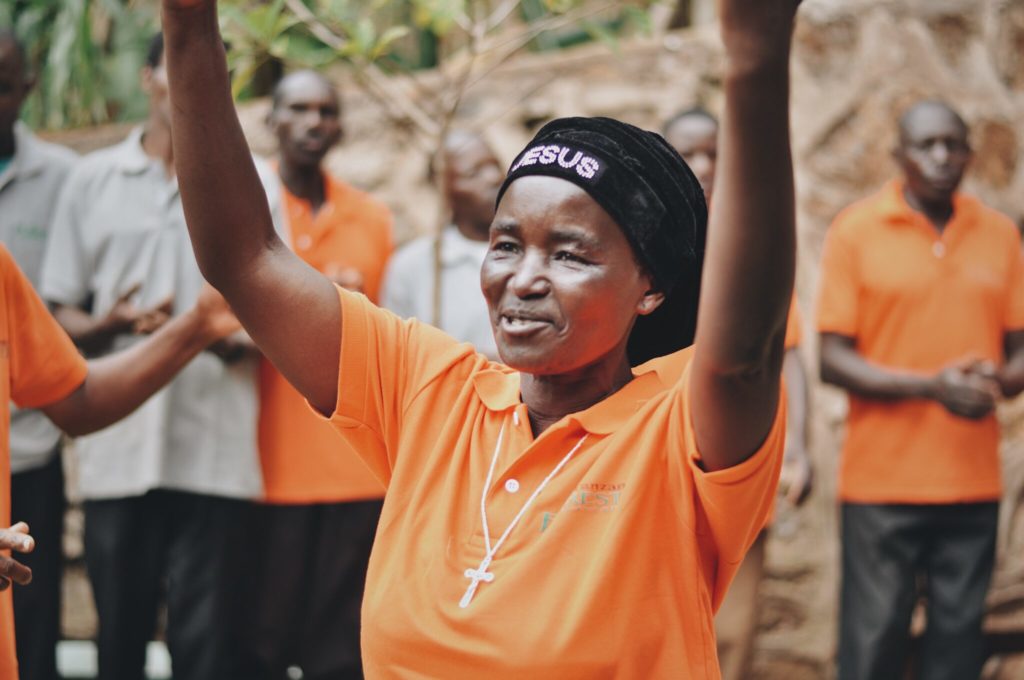What moves people to actually care for the environment at a local level?
Duang Dee lives in Thailand, though he himself is Karen. The Karen are an ethinic group in Southeast Asia that do not have their own formal country. Instead, they live between Thailand and Myanmar. Historically, the areas of northern Myanmar have been their home, but many move east to Thailand to escape persecution.
Karen people are predominantly Christian, and this has been one reason for the persecution they’ve experienced in Myanmar. In Thailand, they often continue to face some of the challenges associated with being in a minority group, though many have found a way forward by caring for their land as an environmental effort.
Duang Dee is especially ambitious about improving the ecosystem around his community. He planted 500 trees last year and hopes to plant a similar amount in the year ahead, despite a major drought that has plagued Northern Thailand.
Duang Dee’s interests in protecting his environmental effort stem directly from his spiritual beliefs.
“I believe and have faith in God’s creation,” he explains. “It’s not just me, but we want to see three times the results we’ve already seen.” Duang Dee’s Christian beliefs revolve around the idea of transformation. Years ago, he struggled with a drinking problem.
“God has changed me and I stopped,” he further explains. Now he believes that the next part of his transformation is to help his community become a hub of sustainability using learned environmental efforts in the face of climate change.
It’s important, what this generation will pass on to the next generation. We have to find ways to care for what we pass on. What we do now is natural resource management, community forest management. We include children at all different ages to the activity so they can start to understand and practice."

Duang Dee plans to plant 500 trees annually.
When it comes to sustainable interventions, delivery systems matter
The seamless connection between Duang’s spiritual beliefs and his desire to increase the environmental efforts around his community might seem unusual to those from a Western context, where strong religious affiliations are negatively associated with concern for the environment. In spite of this, global communities show us that people often practice spirituality and sustainability together.
In Indonesia, for instance, religious leaders from the six largest faith traditions have been given a role to encourage conservation in their communities. This has led to a rise of “Green Mosques” and “Green Churches.”
They aren't alone. In Tanzania, local farming co-ops discover soil conservation methods by exploring how God designed the earth to operate. Likewise, in Ethiopia, monks practice spiritual contemplation and prayer in protected church forests.
From the start, Plant With Purpose has worked in partnership with village churches and faith communities around the globe.
These indigenous-led churches have led the charge towards repairing watersheds. They have created new income opportunities, and caring for community members who have faced an emergency. This partnership with over 700 churches has led to healthier families, larger forests, and greater resilience across the board.
The biggest lesson learned in over three decades of experience is this: faith communities are an important agent of change.
In short, churches are often ideal delivery systems for getting communities to buy into solutions like environmental efforts.
What is a delivery system? Melinda Gates defines it as: “getting tools to people in ways that encourage people to use them.” She adds that “it is crucial and it is often complex. It can require getting around barriers of poverty, distance, ignorance, doubt, stigma, and religious and gender bias.”

Ethiopia has a long history of integrating ancient faith practices with forest protection.
Motivation to protect ecosystems starts from within
James Cochrane, a renowned researcher in International Development, argues that faith cannot be separated from development. Doing so fundamentally misunderstands what it means to be human.
Creating sustainable change means creating shifts in behavior. People do not often change their behavior when new facts are introduced. The main thing that influences a person’s behavior is their sense of identity.
If you want to move an agricultural community towards practicing regenerative farming, if you want to equip an indigenous community towards sustainable land management, if you want to mobilize tens of thousands of tree planters, your best opportunity isn’t through an air-tight lecture about how these habits create improvements. Your best opportunity is to start at a soul level. Explore each person’s concept of identity. How do they see their role in the world? Very quickly, a spiritual framework becomes important.
When we see our opportunity to care for the environment as an expression of who we are, our enthusiasm towards sustainability grows.
It’s helpful to understand the practical ecological and economic benefits of planting trees or practicing soil conservation. However, what’s truly compelling is understanding what that means for us as mothers and fathers. As members of our tribe. As children of God.
In a Tanzanian village a little outside Arusha, Christina runs her hands through a layer of compost soil. “When we use compost, everything is going as God planned,” she explains. “and when we use chemicals, we kill those organisms, and there will be no more natural fertilization of the soil by those organisms.”
“We are trained in Creation Care, and we are reminded by Genesis of creation. We thank God that we now understand and take part in God’s creation with tree nurseries and organic agriculture," she continues. "I am so thankful for what we can do as a group, and as individuals. As a family. We love each other, we support each other, and we help each other.”
To help Plant With Purpose equip churches to love people by healing their land, make a donation here.

















